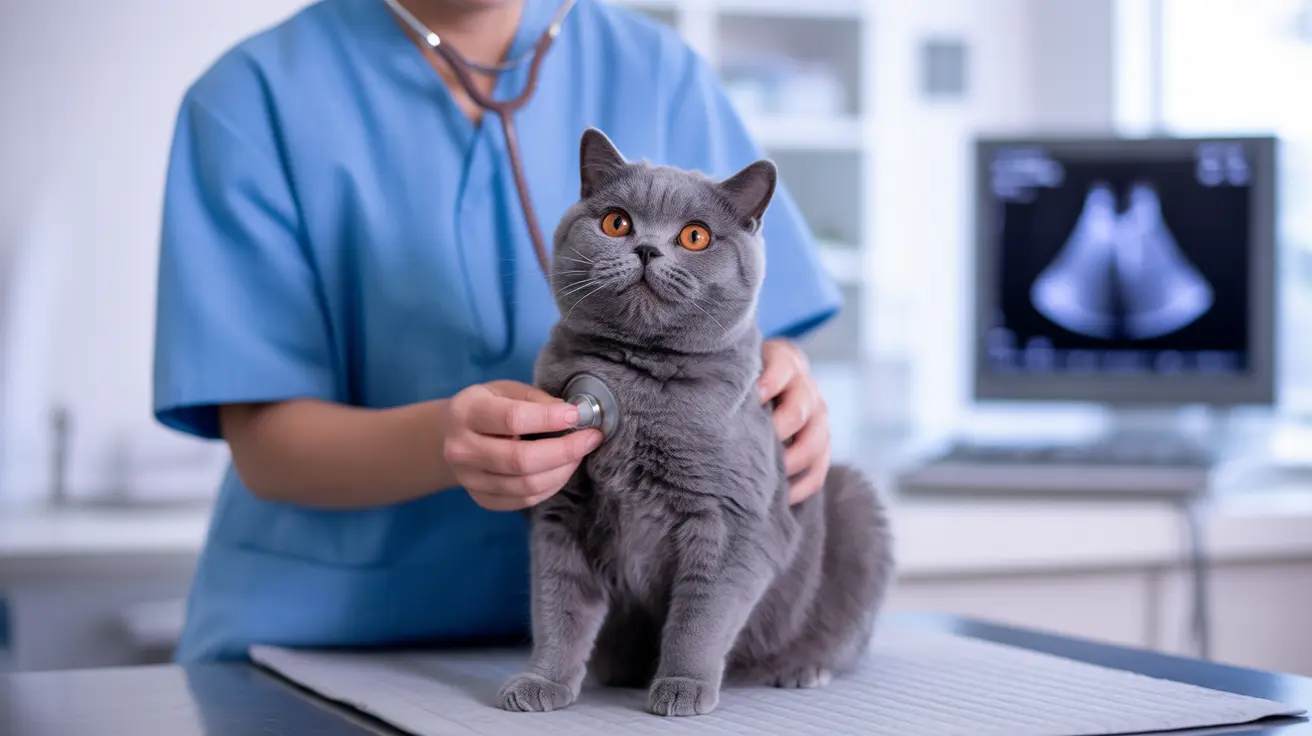Introduction
Understanding British Blue health issues is crucial for any owner or potential adopter of this beloved cat breed. As a variant of the British Shorthair, the British Blue is renowned for its distinctive blue-gray coat and sturdy build, but like all pedigree cats, it comes with specific health considerations that require attention and proactive care.
In this comprehensive guide, we'll explore the various health challenges that British Blues may face, from inherited conditions to lifestyle-related concerns, and provide expert advice on prevention and management strategies to ensure your feline friend enjoys a long, healthy life.
Common Hereditary Health Conditions
Hypertrophic Cardiomyopathy (HCM)
HCM stands as the most significant hereditary concern for British Blues. This heart condition causes thickening of the heart muscle walls, potentially leading to serious complications. Early detection through regular veterinary screening is essential, as symptoms may not be visible until the disease has progressed significantly.
- Labored breathing
- Lethargy
- Sudden paralysis (particularly in the hind limbs)
- Open-mouth breathing
- Unusual vocal sounds or distress
Polycystic Kidney Disease (PKD)
PKD affects many British Blues, particularly those with Persian ancestry in their lineage. This inherited condition causes multiple cysts to develop in the kidneys, potentially leading to kidney failure over time. Regular veterinary check-ups and genetic testing can help identify this condition early.
Lifestyle-Related Health Concerns
Weight Management and Obesity
British Blues are naturally predisposed to weight gain due to their sedentary nature. Obesity can lead to numerous health complications, including diabetes, joint problems, and increased strain on the heart. Maintaining a proper diet and regular exercise routine is essential for preventing weight-related issues.
Dental Health
Dental disease is particularly common in British Blues. Regular dental care, including at-home tooth brushing and professional cleanings, can prevent serious oral health issues that might affect their overall well-being.
Preventive Care Strategies
Regular Health Screenings
Proactive health care is crucial for British Blues. Regular veterinary check-ups should include:
- Annual heart screenings
- Dental examinations
- Blood work
- Weight monitoring
- Genetic testing when appropriate
Diet and Exercise
A balanced nutrition plan and regular exercise routine are essential for maintaining optimal health. British Blues should be fed high-quality cat food appropriate for their age and activity level, with portion control to prevent obesity.
Frequently Asked Questions
What are the common hereditary health issues affecting British Blue cats?
The most common hereditary health issues in British Blues include Hypertrophic Cardiomyopathy (HCM), Polycystic Kidney Disease (PKD), and Hemophilia B. These conditions are genetic and can be screened for through various testing methods.
How can I detect early signs of hypertrophic cardiomyopathy (HCM) in my British Blue cat?
Early signs of HCM can be subtle but may include lethargy, difficulty breathing, rapid breathing, or collapse. Regular cardiac screenings with a veterinarian are essential for early detection, as many cats don't show symptoms until the disease is advanced.
What lifestyle factors increase health risks for British Blue cats, and how can I manage them?
The main lifestyle factors include obesity, lack of exercise, and poor dental hygiene. These can be managed through proper portion control, regular play sessions, and consistent dental care routines.
How important is genetic testing and screening for British Blue cats to prevent inherited diseases?
Genetic testing is crucial for British Blues, especially for breeding cats. It helps identify carriers of hereditary conditions like PKD and HCM, allowing breeders to make informed decisions and reduce disease prevalence in the breed.
What are the best preventive care steps to keep my British Blue cat healthy and avoid common breed-related diseases?
Key preventive care steps include regular veterinary check-ups, maintaining a healthy weight, proper dental care, adequate exercise, and a balanced diet. Early detection through screening and prompt attention to any health changes are also essential.
Conclusion
While British Blues may face certain health challenges, most can live long, healthy lives with proper care and attention. Understanding these potential health issues and maintaining a proactive approach to health care will help ensure your British Blue stays healthy and happy throughout their life.






